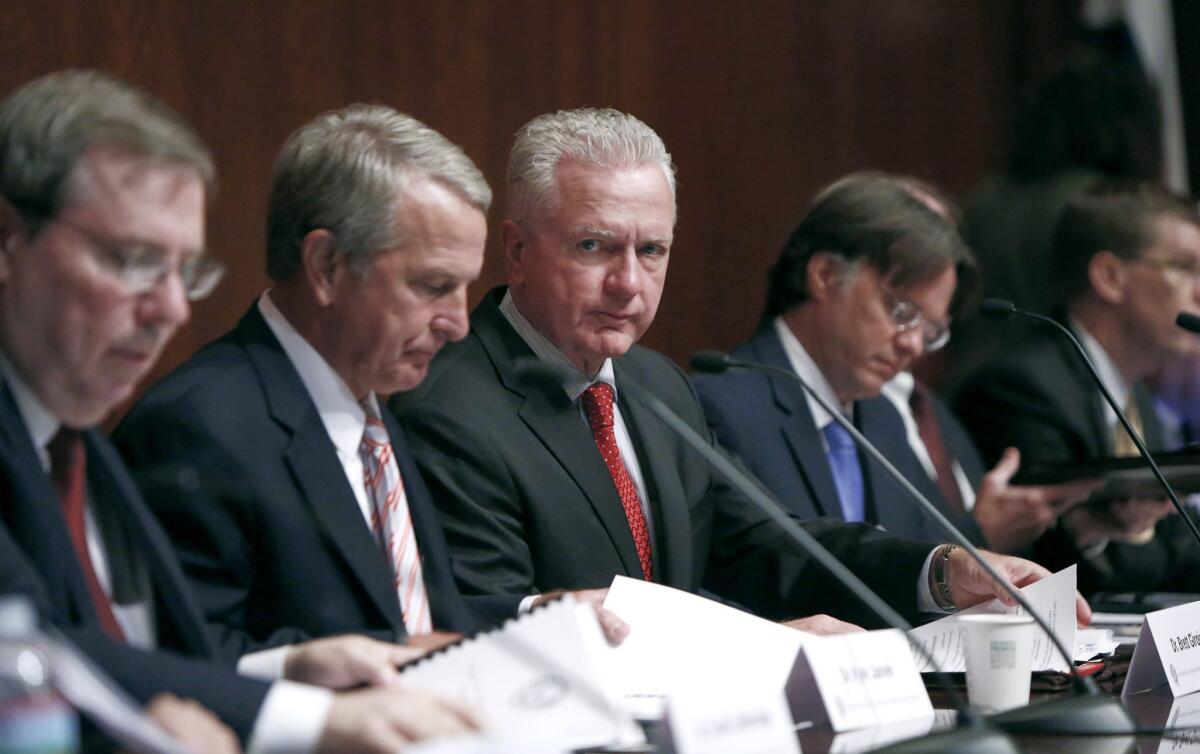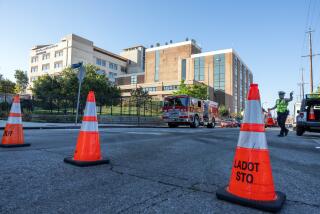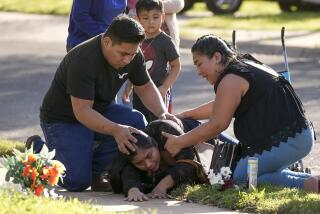Texas hospitals prepare in case Ebola strikes again

With two Texas nurses diagnosed with Ebola still hospitalized, a newly formed state task force on infectious diseases met Thursday for the first time to review the state’s medical and public health preparedness to cope with the deadly virus.
The country’s first Ebola diagnosis in Dallas on Sept. 30 led Gov. Rick Perry to form the task force and two “bio containment” treatment centers near the state’s largest metro areas, Dallas and Houston.
Professor James LeDuc, director of the Galveston National Laboratory at the University of Texas Medical Branch, said the facility there can treat up to three Ebola patients at a time. Thirty staffers who work there recently met voluntarily with experts from the Centers for Disease Control and Prevention.
“God forbid that another case occur, we feel we are prepared to take that on,” LeDuc said during Thursday’s hearing in Austin.
Officials from other Texas hospitals said they have also stepped up training, safety equipment and preparedness.
“The first patient could have walked through the doors of any of our facilities,” said Dr. Robert Philips, chief executive officer of Houston Methodist Hospital, which he said was creating an Ebola treatment unit.
Dr. Ron Cook of Texas Tech Health Sciences System in Lubbock, said hospital staff had to learn how to respond quickly last week when a patient from West Africa arrived with fever and diarrhea -- Ebola-like symptoms.
Hospital officials thought they were prepared, Cook said, but the experience revealed “some holes in our plan.”
For instance, the patient’s family members were isolated for monitoring at home, but had only one bathroom. Officials brought them a portable bathroom, and in the end the patient did not have Ebola.
As task force officials questioned two panels of medical professionals, they debated how wide to cast the net of potential Ebola contacts that should be monitored after cases are diagnosed, wary of wasting resources.
And they reiterated that the new Ebola treatment centers were not expected to remove the burden of preparedness from local hospitals.
“This is everybody’s problem,” said Dr. Brett Giroir, leader of the Texas A&M Health Science Center and of the task force.
The first patient diagnosed with Ebola in Dallas, Thomas Eric Duncan, 42, died Oct. 8.
Two nurses who treated him were later diagnosed with the disease, and remained hospitalized Thursday: Nina Pham, 26, and Amber Vinson, 29.
Vinson’s family released a statement this week noting that her condition had improved and that doctors at Emory University Hospital in Atlanta could no longer detect the Ebola virus in her blood.
Pham was being treated at a National Institutes of Health hospital in Bethesda, Md., where her condition had also improved to good this week and officials said she was able to communicate with family via video chat.
Her dog, Bentley, had been isolated and tested by Dallas city officials who announced this week that the Cavalier King Charles Spaniel was Ebola-free.
Follow @mollyhf for national news.
More to Read
Start your day right
Sign up for Essential California for news, features and recommendations from the L.A. Times and beyond in your inbox six days a week.
You may occasionally receive promotional content from the Los Angeles Times.







